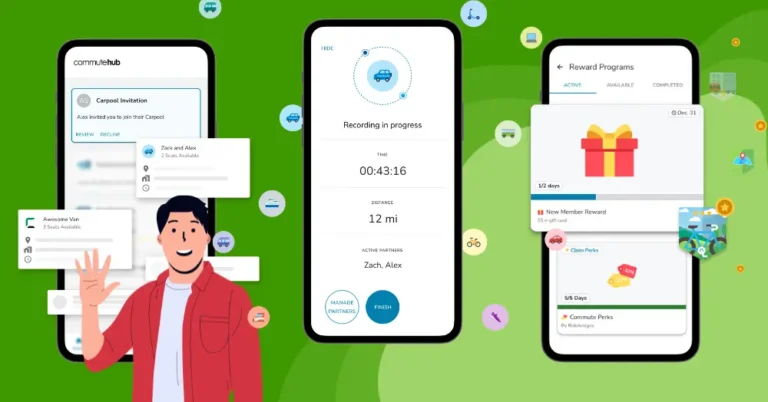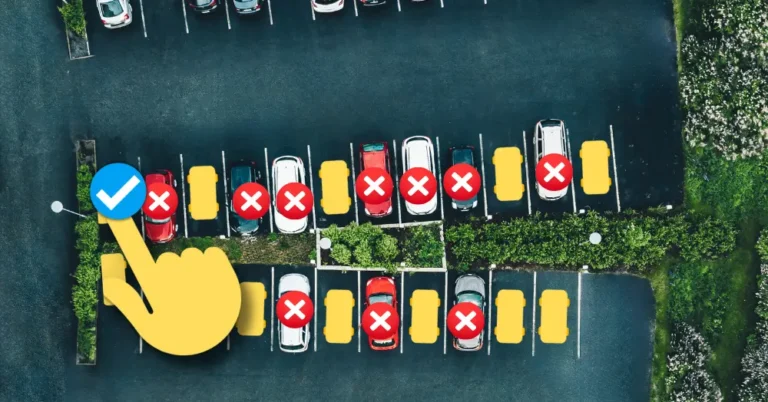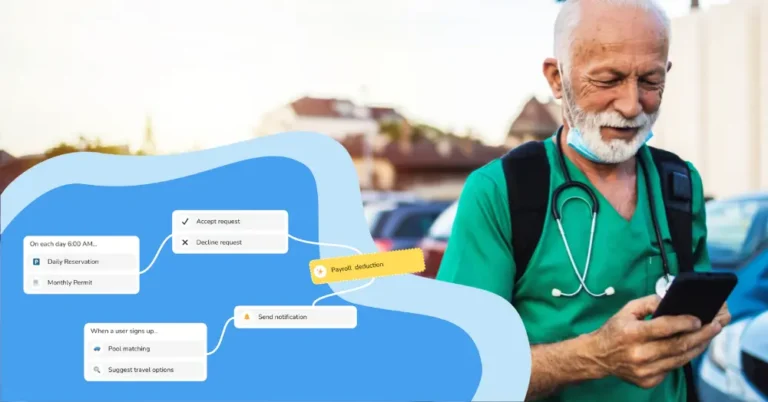Transportation demand management (TDM) professionals have long known that incentives are one of the most effective ways to reduce single-occupancy vehicle (SOV) usage. Incentives provide that little bit of extra motivation many commuters need to try — and stick with — alternatives to solo driving. However, ongoing funding of TDM incentives has been a persistent challenge for many organizations, as interpretations of federal guidance for the use of Congestion Mitigation and Air Quality (CMAQ) dollars varies widely from region to region.
What incentive funding strategies are TDM leaders developing today?
Seeking to connect TDM stakeholders with reliable strategies for funding TDM incentives, the Denver Regional Council of Governments (DRCOG) recently conducted a comprehensive analysis of successful funding models in use at peer agencies throughout the United States. Here, we’ll explore DRCOG’s findings and the lessons they hold for metropolitan planning organizations (MPOs) across the country. You can read the full report here.
This review covers:
- Atlanta Regional Commission’s Georgia Commute Options
- San Mateo County’s Commute.org incentive programs
- Sonoma County’s Go Sonoma Commute Rewards
- Best practices and strategic insights for funding TDM incentives
Atlanta Regional Commission’s Georgia Commute Options
Atlanta Regional Commission (ARC) serves an area spanning 11 commuter-heavy counties through its Georgia Commute Options (GCO) program. GCO’s goal is to reduce SOV travel and through user surveys, it discovered that rewards were a primary motivator for 61% of its target commuter base.
Equipped with that insight, GCO created a series of enticing incentives. These include:
- Gimme Five: Solo drivers can earn $5 per day by switching from an SOV to a carpool, vanpool, or other eligible alternative. Rewards max out at $150 over a designated 90-day period.
- $25 Prize: Established clean commuters qualify for a monthly $25 prize draw, creating an incentive to stick with more sustainable choices.
- Carpool Rewards: All participating members of a commuter carpool can snag monthly rewards as soon as one commuter in the group logs eight carpool commutes in a given month.
- Commuteperks: Users who log at least five clean commutes in a month unlock exclusive discounts at a network of local and national businesses.
To fund these TDM incentives, ARC built a three-year budget of $800,000, leveraging CMAQ funds with support from the Georgia Department of Transportation.
ARC used CommuteHub’s Commute Rewards program powered by Tango to distribute gift cards to eligible recipients. In addition to streamlining management of the programs, this ensures that government employees do not directly handle any funds, solving a critical compliance requirement.
San Mateo County’s Commute.org incentive programs
Commute.org functions as the designated TDM agency in California’s San Mateo County, which is part of the heavily populated San Francisco Bay area. The RideAmigos CommuteHub platform powers Commute.org’s incentive programs, which include:
- Points programs that allow clean commuters to earn up to $100 annually in $25 e-gift cards
- $5 rewards for new clean commuters who reach a smart-trip milestone after joining the commuter program
- $25 Bay Area Rapid Transit (BART) Clipper Card passes for qualified and registered commuters who want to try out public transit
Commute.org uses a diversified model to fund its TDM incentives. Most of the money comes from San Mateo County’s Congestion Relief Program, which collects funding from Commute.org’s member jurisdictions based on factors including population and trip projections. However, funding also comes from local sales taxes, government-backed clean air funds, and a network of private-sector partners.
This model offers an important advantage: because it does not rely on federal CMAQ dollars, it avoids the restrictions that impede MPOs from funding TDM incentives directly. Its flexibility and partnership-oriented model also extends the reach of the campaign while shielding it from unpredictable changes in federal funding priorities.
Sonoma County’s Go Sonoma Commute Rewards
Launched in 2023, the Sonoma County Transportation Authority’s Go Sonoma Commute Rewards program has quickly established itself as another innovative example of how TDM incentive programs can use local funding models rather than relying on federal resources.
Financed by county-level sales tax revenues and monies from regional clean air and pollution reduction programs, Go Sonoma Commute Rewards offers a diverse set of practical and appealing incentives. Highlights include a guaranteed ride home program and the opportunity to earn up to $50 per year in redeemable gift cards by logging smart commutes to earn points.
Like San Mateo County’s programs, Go Sonoma Commute Rewards provides a creative alternative to reliance on federal CMAQ funding. It is also an excellent example of how to make scalable commuter programs work on a limited budget.
Best practices and strategic insights for funding TDM incentives
These three case studies, and others included in DRCOG’s comprehensive analysis, offer several key lessons you can put into action when funding TDM incentives:
- Understand user motivations: By following ARC’s surveying model, you can align your TDM programs with user needs. This will position your program for organic success.
- Prioritize flexible, multi-source financing: Revenues from local taxes and funds from existing air quality and sustainability programs both support agile program designs that reduce exposure to the risks and limitations of relying on federal CMAQ support.
- Partner with local transit authorities: Free or subsidized transit passes are appealing incentives to commuters that don’t require MPOs to make major financial outlays.
- Consider third-party administrators: ARC and Commute.org both outsourced their incentive distribution, which conserves their internal resources while minimizing their exposure to compliance-related risks.
The right technology tools also play a crucial role in helping MPOs streamline program administration, saving time and preserving human and financial resources for deployment on higher-impact projects. ARC, Commute.org, and the Sonoma County Transportation Authority all trust RideAmigos’ CommuteHub platform to maximize the reach of their budgets and harvest intelligent insights into program design and performance.
To learn more, please contact RideAmigos to schedule a CommuteHub demo.





